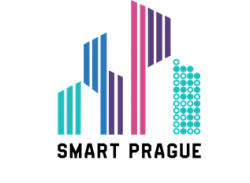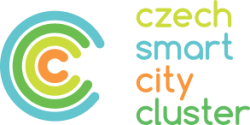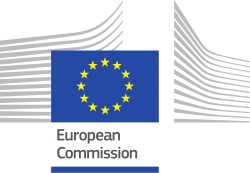Smart Cities
Cities integrating information and communication technology and individual devices connected to the IoT network to optimize operations, services and connections to users and attain synergies among otherwise discrete parts of infrastructures as a system of systems.
The development and use of modern digital technologies makes it possible, among other things, to simplify and streamline the administration and organization of life in cities, thus making life easier for their inhabitants and visitors. The European Union has therefore decided to focus on data, technology and infrastructure and launched the “Europe fit for the digital age” initiative. Thus, during the European “digital decade”, the EU is to transform digitally, strengthen its digital sovereignty and determine what digital standards will apply in its territory. Shaping the EU’s digital future should be based on technologies that serve citizens and businesses which will bring benefits to their daily lives and economic activities, while helping the EU achieve its goal of a climate-neutral Europe by 2050. The EU wants to be a global role model in the digital economy sector.

Europe fit for the digital age
The European Union takes the use of information technology and digitization very seriously. Therefore it presented its plans for the digitalisation of the EU as part of a comprehensive initiative “Europe fit for the digital age”. The EU wants to be a global role model for the digital economy, supporting developing economies in going digital and to develop digital standards and promote them worldwide.
The Internet of Things (IoT) will allow the collection of large amounts of data from various sources (eg sensors). Large data centres ensure the storage of data obtained in this way and their subsequent processing, whether it is the involvement of artificial intelligence (AI) for automatic processing or processing by specialized analysts. All this brings security issues along, especially securing data from misuse, securing the functionality of systems and, last but not least, securing access to systems. It is also necessary to have enough professionals who are able to solve challenges and problems that may arise.
Digital transformation is to be realized through digital solutions that put people first and which:
- Bring new opportunities for businesses;
- Support the development of trusted technologies;
- Promote an open and democratic society;
- Enable a vibrant and sustainable economy; and
- Help fight climate change and achieve a green transition
with three streams of actions:
(1) Technologies that serve people, including topics such as:
- Artificial Intelligence,
- Digital competence,
- connectivity,
- cyber security;
(2) A fair and competitive digital economy covering topics such as:
- High-performance computing,
- European data strategy,
- European industrial strategy,
- Digital Markets Act,
- Digital Services Act; and
(3) An open, democratic and sustainable society covering topics such as:
- Carbon neutrality,
- Online platforms and e-Commerce,
- Digital Markets Act,
- Digitization of European industry,
- Support for start-ups,
- Digital inclusion.
This ambition is particularly challenging for cities, which are centers of innovation and progress and which are to become key places in this transformation. For this purpose, the European Commission plans to invest in the development of research and the use of digital technologies in cities and state and local authorities.
In the Czech Republic focus on smart cities
Smart Cities Working Group under the Government Council for Sustainable Development
A working group of the Ministry for Regional Development focusing on promotion of the concept of Smart Cities in Czechia.
Smart Prague
A platform for promotion of the Concept of Smart Prague.
Czech Smart City Cluster
A Czech cluster focusing on development of partnerships among companies, state administration, local government, knowledge institutions and city dwellers, transformation of knowledge of development and research into the environment of cluster members.
Smart City Innovation Institute, z.ú.
An institute focusing on connecting important, but independently and remotely operating industrial spheres (creative, knowledge and educational industries).
Support from EU
A Europe Fit for the Digital Age
A key EU initiative for digital transformation and empowering people in Europe with a new generation of technologies.
Smart Cities Marketplace
A market-changing enterprise supported by the European Commission bringing together cities, industries, SMEs, investors, researchers and other smart city actors.
European Smart Cities (Technische Universität Wien)
A European platform for Smart City Model development coordinated by Vienna University of Technology.
Smrti cities in the world
Smart Cities World
A platform for sharing ideas and a quality, comprehensive and current global content resource for urban leaders and their partners.
Topics
People

Christopher Tebb
Digital a BIM Expert (Smart Cities)
Digital Lead for Mott MacDonald's ISMA Region and Global Delivery Services Unit currently based in Mott MacDonald Prague office
News
We have no results for the given criteria.
Events
Available
PPP in practice: PPP and parking
- Diskuze
- Non-grant financing
- Organizer ARI
Videos

16. 3. 2021
European Green Deal and digital transformation 1

16. 3. 2021
European Green Deal and digital transformation 2

16. 3. 2021
European Green Deal and digital transformation 3

16. 3. 2021
European Green Deal and digital transformation 4

16. 3. 2021
European Green Deal and digital transformation 5

16. 3. 2021
European Green Deal and digital transformation 6

25. 6. 2021
PPP in practice: PPP and public transport depots

15. 6. 2021
PPP in practice: PPP and homes for the elderly

2. 6. 2021
PPP in practice: PPP and parking

22. 7. 2021
Energy in buildings and industry

12. 7. 2022
Andrew McNaughton – City station design
Projects
We have no projects on this topic yet.
Another links
We have no results for the given criteria.











